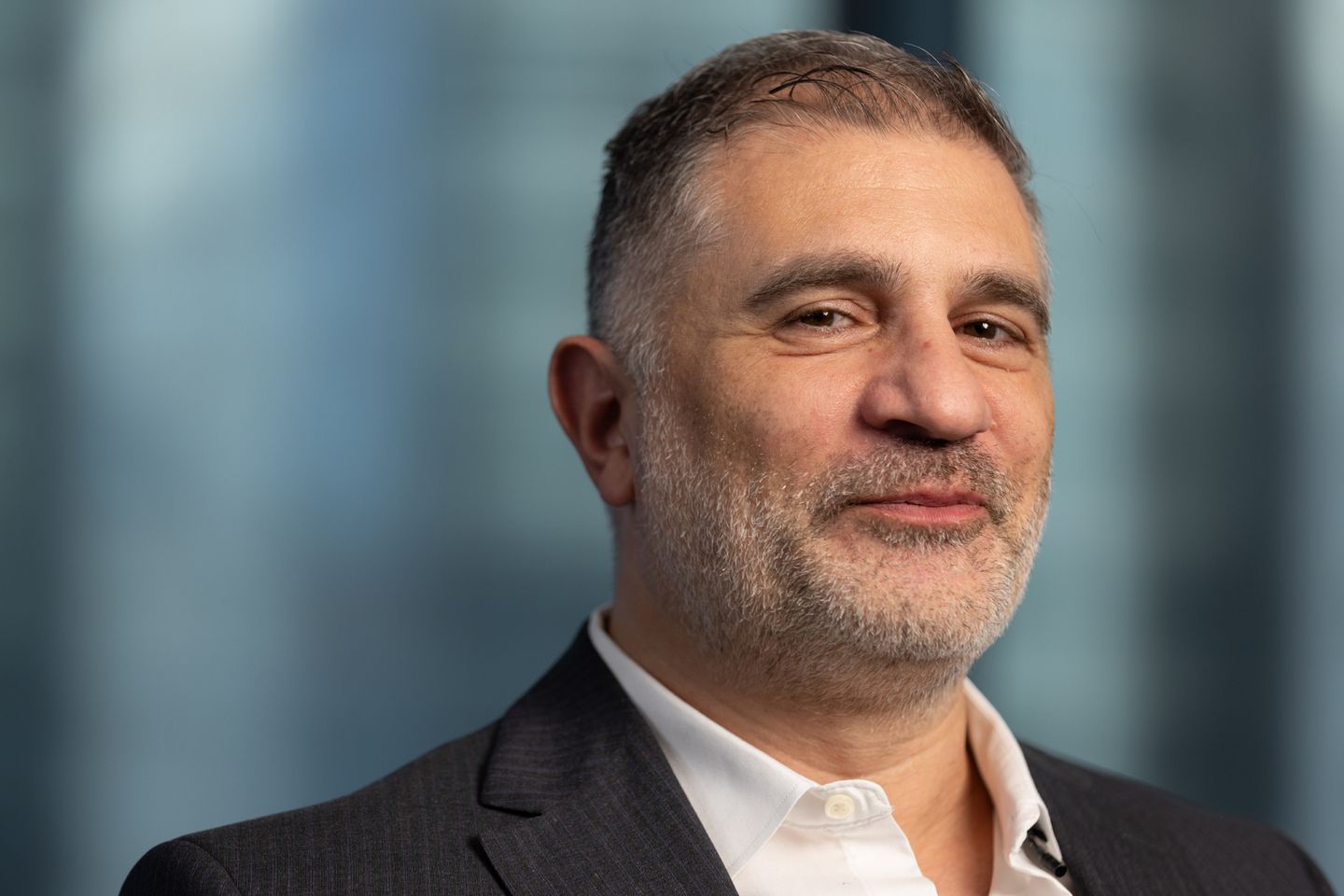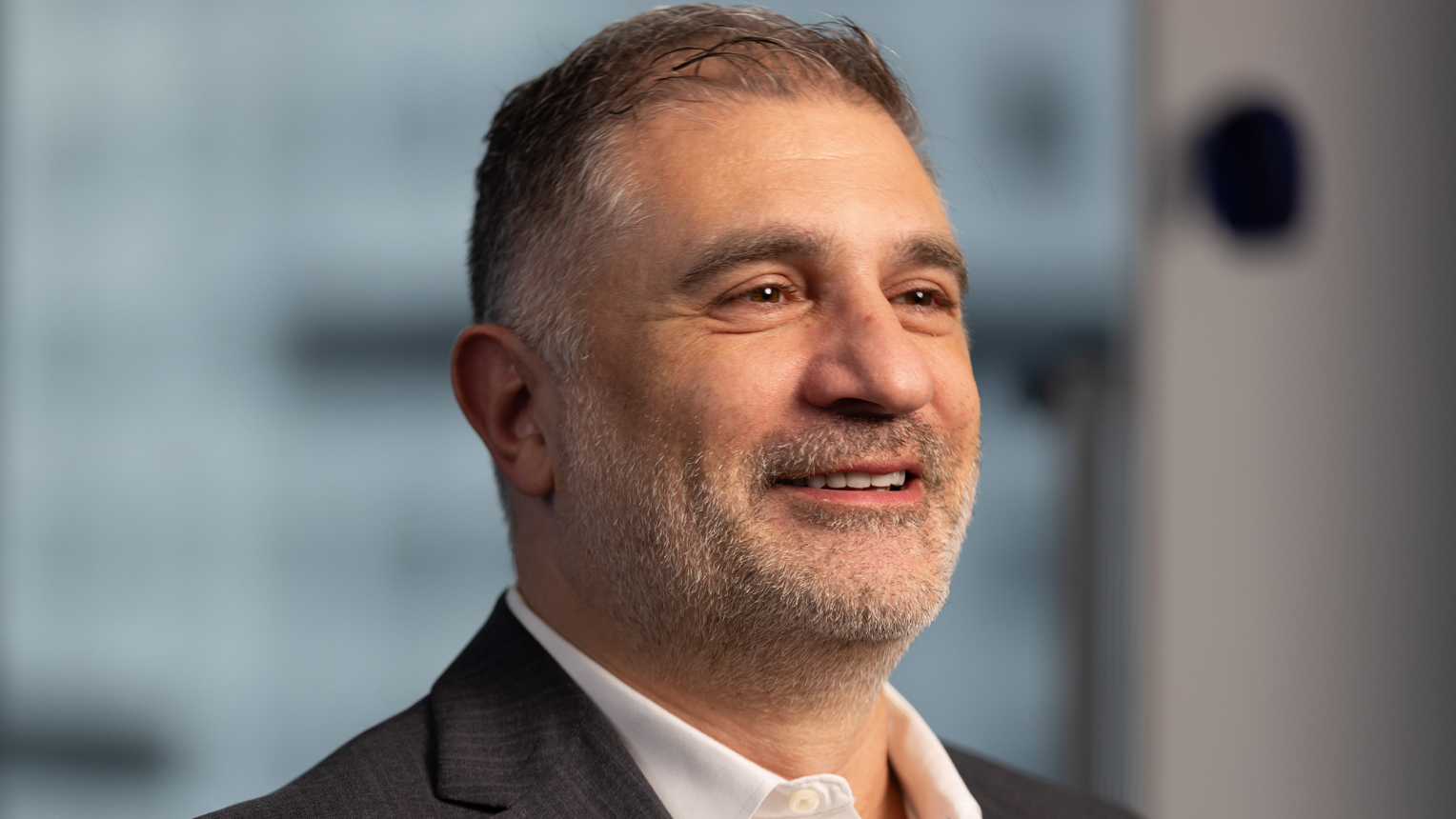- Home
- News Centre Resources
- Patient Centric Clinical Trial
Advancing Rare Disease Research Through Patient-Centric Trial Design

As Head of Development, Regulatory and Safety at Alexion, Gianluca Pirozzi channels his life’s experience with rare disease to inform his work at Alexion, ensuring clinical programmes are fueled by a patient-focused mindset. As a clinician, industry veteran and father of a child with a rare disease, his unique perspectives help to shape Alexion’s approach to clinical development and foster meaningful advancements for people impacted by rare diseases. We sat down with Gianluca to learn about his philosophy to rare disease R&D and how Alexion’s patient-centered approach is innovating rare disease clinical trial design.
What drew you to a career in science and in rare disease?
I went into medicine because of an early personal experience. My best friend in high school had a rare genetic disease, and he became very sick as a teen. This disease impacted his hematological and immune systems, and unfortunately, he tragically passed away at only 19. Seeing him face such challenges made a lasting impression on me. His journey brought me into medicine and led me to focus on immunology.


Years later, I became interested in working in rare disease after my daughter was diagnosed with an ultra-rare condition. When she was diagnosed at one and half years old, all we had was that diagnosis, with little other information on causes or treatments. And as I began to research rare diseases, I learned that my family’s experience was not unique. Even when someone is fortunate enough to receive an accurate or timely diagnosis, it’s very likely there are no effective treatment options for their rare disease.

Being a “rare parent” means that you both understand and live the day-to-day complexities of a rare disease. For me, it means trying to find solutions for my child, from how to solve the everyday challenges to much bigger challenges, such as are there any therapeutic options available? What can we do to bring better treatments to patients?
This experience ignited my passion for advancing rare disease research, and continues to fuel my work to develop new options with the potential to make a profound difference in the lives of patients and their families."
How has your R&D approach at Alexion been shaped by the rare disease community?
For me, being a part of the rare disease community has profoundly changed my perspective as an R&D leader. It was a turning point where I suddenly understood that to advance clinical research for rare diseases, it's much more complex than in other scientific areas. The reality is that most rare diseases are not well understood, and we are working to change that.
In my early days as a rare dad, my best sources of information were associations that connected me with other parents going through a similar experience. While clinical data and medical texts can give us a lot of information, only direct conversations and hearing the patient experience can help us to understand what it means to live with a rare disease—and the moments that matter most to families.
At Alexion, patient and caregiver perspectives are an integral part of our R&D process from the earliest stages. Their insights help us better understand the authentic, lived experiences of patients and help guide how we design and then operationalize clinical trials, ensuring they reflect the realities and needs of the community.
How does Alexion practice its patient centric approach?
Our approach to patient centricity is rooted in collecting feedback from the community continuously and applying those learnings to our work in tangible, measurable ways. We have developed a series of frameworks that give us a deeper understanding of what living with a rare disease means, by connecting our colleagues directly with the community (patients, physicians, payers and advocates).
It’s essential we make enrolling and taking part in a clinical trial easy and seamless. Because rare disease populations are small, every participant in a rare disease clinical trial plays a critical role in helping us drive meaningful advancements forward. We utilize a bespoke rare disease Patient Friction Coefficient as well as clinical trial simulations to quantifiably evaluate a trial’s burden and track our efforts to alleviate potential barriers, such as travel time or childcare needs.
Where do you see opportunities to improve the participant experience in clinical trials?
As an industry, we continue to make strides to enhance the clinical trial experience, most notably in telemedicine where tools for home-based health monitoring and remote data collection offer patients and investigators greater flexibility and convenience. Yet trial access remains a barrier to many people in rural or remote areas who may need to travel hours to participate in a trial.
Expanding the use of digital tools—and potentially fully-remote visits—could help close critical gaps in trial participation by reducing the burden placed on patients and caregivers to participate. These tools may also help trials to engage more diverse populations, allowing our data to better reflect the communities affected by rare diseases.
By harnessing tools like AI and machine learning, we have the potential to enhance the quality and depth of real-world datasets used in clinical research. These richer datasets capture detailed patient outcomes and treatments that could help improve understanding of how an investigational therapy works in the body, and may lead to reducing the need for a control or placebo group in some studies, helping to streamline clinical trials to get results more quickly.
How does participating in a clinical trial help advance research?
The participation of patients and their families in our clinical trials is essential for advancing clinical research to find potential new solutions to address the unmet needs of people living with rare diseases. This is why we remind each person participating in a clinical trial that their involvement has an impact outside of their circle; they are contributing to progress that could change countless lives in the rare disease community. To state simply, our work would not be possible without the patients who participate in our clinical trials.
Share This Page
More articles you may like

Article • February 03, 2026
Advancing Policy, Partnerships and Progress for the Rare Disease Community
As we reflect ahead of Rare Disease Day, we reaffirm our commitment to pioneering innovations for the rare disease community and to shortening the time to diagnosis, improving access to lifesaving care, and advancing health care policies that support patients and families.

Clinical Trials • October 28, 2025
Shaping the future of R&D with real world insights into rare disease
Studying a rare disease often involves working with fragmented information, much like piecing together scattered pages of different books, each offering part of the story but rarely forming a complete picture. Researchers face this challenge due to small, often underdiagnosed, patient populations and limited understanding of how these diseases progress over time.

Diagnostics • September 17, 2025
Genomic Innovation to Support Newborn Screening of Rare Diseases
Today, while more than 10,000 rare diseases are known, recommended newborn screening panels cover only about 40 core conditions. This gap underscores the need for innovative approaches to expand the reach of newborn screening.

Thought Leadership • June 11, 2025
Paving Regulatory Pathways in Rare Disease
Many rare disease medicines are often a first of their kind, and a clear roadmap for their development and approval does not exist. Navigating the complex and sometimes unprecedented regulatory environment for rare disease requires innovation, collaboration and a patient-first mindset.

Article • February 24, 2025
Supporting Patients on Rare Disease Day, and Every Day
Rare Disease Day recognizes the 400 million people worldwide – and 30 million in the United States – who are living with a rare disease. While significant progress has been made in understanding rare diseases and developing treatments, the need for continued awareness, research and support is as great as ever.

Patient Support • February 05, 2025
Addressing the Unmet Needs of the Amyloidosis Community
We spoke with Cristina Quarta, Executive Medical Director, about a group of rare diseases known as amyloidosis, the medical needs within this community and how her work as a cardiologist shapes her approach to research and development (R&D) for rare cardiac conditions.

Patient Support • September 23, 2024
Shortening the Path to Diagnosis in Rare Disease
With 10,000 known rare diseases defined today, the path to diagnosis can often resemble a puzzle, with physicians as detectives searching for clues. Many physicians never encounter a rare disease beyond the pages of their medical school textbooks.

Research and Development • September 18, 2024
Getting to know Nick France, an Alexion R&D Leading Voice
To create meaningful advances in rare disease research, it takes an innovative culture, strong collaboration, and a patient-centric vision for delivering transformational solutions. At Alexion, these pillars are important to successfully develop impactful medicines for patients.

Patient Support • June 25, 2024
Getting to know Chathuri Daluwatte, an Alexion R&D Leading Voice
Artificial Intelligence (AI) is rapidly advancing and has the potential to have a transformative impact on clinical research and development (R&D).
